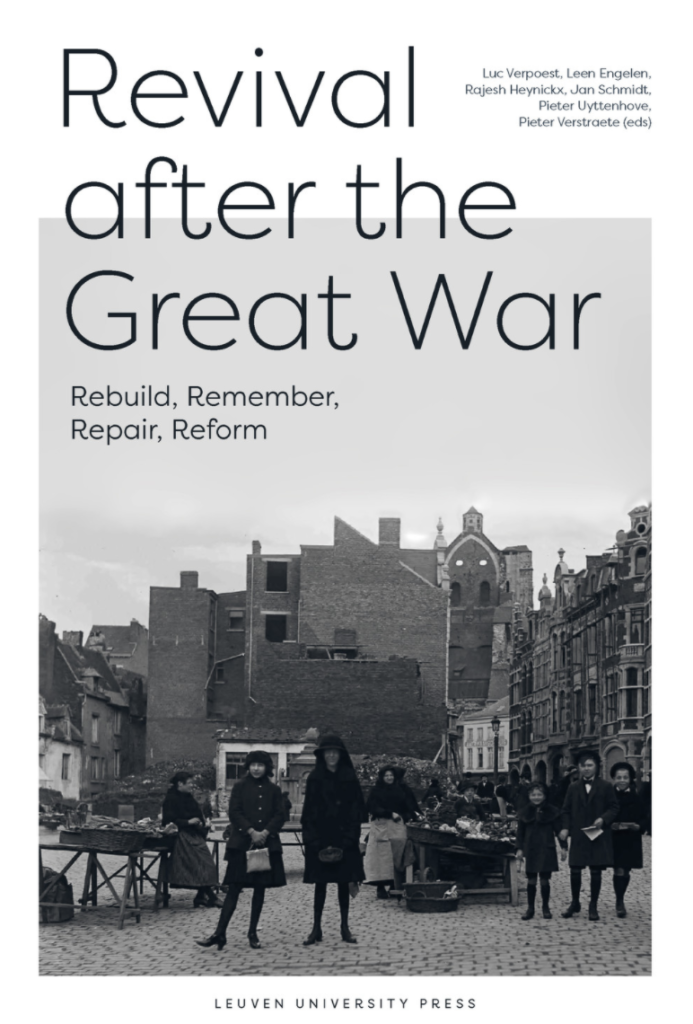New project findings published

In 2018 Helen Brooks, the Great War Theatre project lead, was delighted to be invited to present at the international colloquium, Revival after the Great War: Repair, Rebuild, Remember. Leuven (8-9 May 2018). Two years later the proceedings of the conference have been published in a free, downloadable, open access book: Revival after the Great War: Rebuild, Remember, Repair, Reform, edited by Luc Verpoest, Leen Engelen, Rajesh Heynickx, Jan Schmidt, Pieter Uyttenhove, and Pieter Verstraete (Leuven, University of Leuven Press, 2020).
The book includes Brooks’ chapter on theatre after the war, entitled ‘Remembering the War on the British Stage: From Resistance to Reconstruction’. This chapter reflects on the ways in which British theatre developed in the years immediately following the war. It examines a range of plays staged in both regional and metropolitan theatres, and by both professionals and amateurs, and in doing so draws on and acknowledges research by project volunteer, Michael Waters, on The Man Who Stayed At Home. Through her analysis Brooks shows that rather than turning away from the war as a theme, theatre makers repeatedly returned to, remembered, and re-staged the war. Equally importantly, she argues, they did this through the production of new plays about the conflict and its aftermath, as well as by continuing to stage war-plays first written and performed during the war. Central to the chapters is an analysis of the distinctive ways in which the two different types of productions – revivals and continuing productions of wartime plays; and new plays – functioned in the context of remembrance and reconstruction. Ultimately, Brooks shows how productions of wartime plays provided a space of resistance to peace and reconciliation, whilst the production of new plays enabled the exploration of peace-time demands for rehabilitation and reconstruction through, in particular, the figure of the wounded veteran.
Research by a number of other volunteers including, Linda Cooke, Allan Clark, Suzanne Duffy, Chrissy Giles, Lisa Lisker, Tess Nowell, Mary Roe, Elaine Taylor, Lucy Santos, Michael Waters and Trudy Yates is drawn on and acknowledge in Brooks’ 2019 journal article ”Are there any more recruits?’ British Theatre and the Recruitment Drive, 1914-1915′. This was published in First World War Studies 10:2-3, (2019) 207-224, DOI: 10.1080/19475020.2020.1774913. Here, Brooks argues that British theatre-makers played an important role in recruiting men to the armed forces in 1914 and 1915. She identifies a progression from the use of extra-dramatic interventions in the first weeks of the war, to the blurring of boundaries between stage and auditorium, drawing on plays such as In Time of War, A Call to Arms and England Expects. She ends with an examination of the messages promulgated in these recruiting dramas. Examining a range of plays addressing both men’s reluctance to enlist, and women’s reluctance to let their men enlist, Brooks concludes that recruiting plays offered a far more sophisticated response to the experience of enlisting than has previously been recognized.
